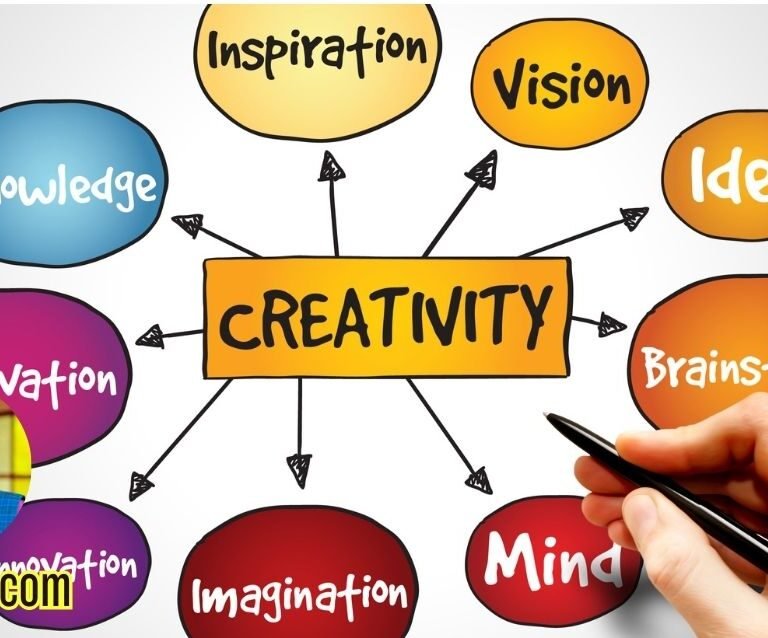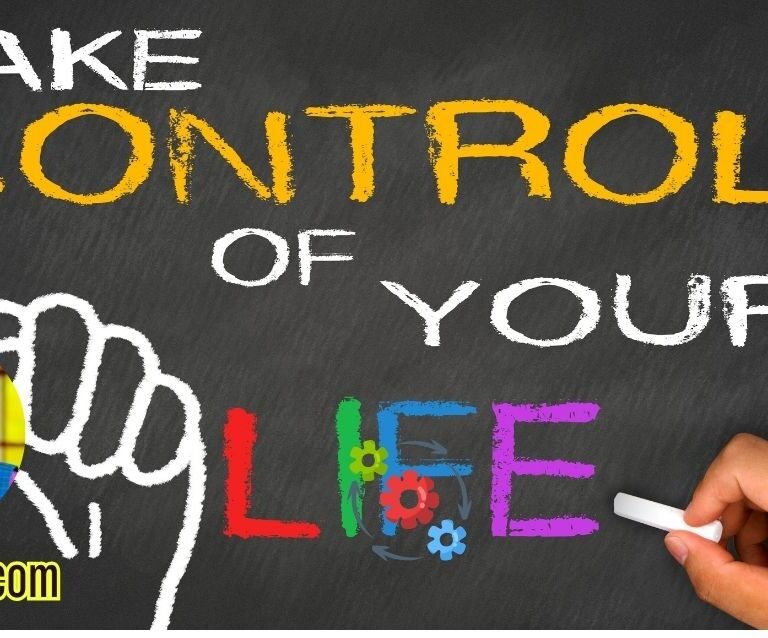Mental Growth
Mental growth is a multifaceted concept that encompasses the development of cognitive abilities, emotional intelligence, and resilience. It plays a pivotal role in both personal and professional development, shaping not only how we respond to various challenges but also how we effectively engage with the world around us. As individuals strive to enhance their mental capacities, they discover that a sharpened mind fosters improved decision-making skills, heightened creativity, and the agility to navigate complex situations.
The significance of mental growth is increasingly recognized in contemporary society, particularly as individuals face an ever-evolving landscape of challenges and opportunities. In both personal and career contexts, the ability to think critically and creatively is paramount. A well-developed mind equips one to identify innovative solutions, adapt strategies to changing circumstances, and make informed decisions that lead to favorable outcomes. Such capabilities are essential for success in a competitive environment.
Moreover, mental growth contributes to emotional wellbeing. Individuals who actively invest in sharpening their minds often report enhanced emotional resilience. This resilience allows them to cope with stress and adversity more effectively, fostering a more balanced approach to life’s ups and downs. As emotional intelligence grows, one’s capacity to understand and manage personal feelings as well as empathize with others deepens, further enriching interpersonal relationships.
In conclusion, the journey toward mental growth is a vital aspect of realizing one’s full potential. Investing time and effort in refining cognitive capabilities not only leads to personal enrichment but also positions individuals for success in their professional endeavors. As we explore methods to cultivate a sharper mind, we recognize that the opportunities that await are limited only by the extent of our mental development.
The Power of Continuous Learning
Continuous learning is an essential component of personal and professional development. It not only enriches your knowledge base but also enhances cognitive abilities, leading to improved mental sharpness. In an ever-evolving world, the capacity to learn new skills and concepts has become a significant asset. This article explores the diverse methods of learning that contribute to an agile and informed mind.
Formal education remains a traditional but effective method of acquiring knowledge. Educational institutions provide structured learning environments where individuals can delve deeply into specific subjects. This type of learning fosters critical thinking and problem-solving skills, as students engage with established theories and practices. However, it is also important to recognize that formal education is not the only pathway to knowledge.
Online courses have emerged as a flexible alternative, offering a wide range of topics and expertise accessible from any location. Platforms such as Coursera and Udemy allow learners to engage with material at their own pace, accommodating various schedules and learning styles. This accessibility can significantly enhance one’s knowledge base and provide practical skills useful in today’s job market.
Workshops are another excellent avenue for continuous learning. These short, intensive programs emphasize hands-on experience, fostering an interactive environment where participants can apply what they’ve learned immediately. Workshops can cover anything from technical skills to creative pursuits, allowing individuals to pursue personal interests or professional advancements.
Self-study is a highly autonomous approach to learning. Individuals can choose materials tailored to their interests and objectives, facilitating a personalized learning experience. By utilizing books, online resources, and expert podcasts, individuals maintain control over their learning journeys, reinforcing their commitment to growth. Through these various methods, continuous learning fosters adaptability and resilience, essential traits in today’s fast-paced world.
Cultivating a Positive Mindset
The cultivation of a positive mindset plays a vital role in enhancing mental capabilities and unlocking limitless opportunities. A positive outlook can improve cognitive function and increase resilience in the face of challenges. One effective technique to foster a positive mindset is through practicing gratitude. By regularly acknowledging and appreciating the positive aspects of life, individuals can shift their focus from negativity to a more optimistic perspective. This shift not only nurtures mental well-being but also enhances problem-solving skills and creativity.
Another technique that contributes significantly to a positive mindset is the use of affirmations. Affirmations, or positive statements that one repeats to themselves, can help reshape thought patterns over time. When individuals consistently affirm their strengths and capabilities, they reinforce self-belief and cultivate a greater sense of agency. This practice not only encourages a more comforting view of oneself but can also lead to improved performance in various life areas, including professional and personal endeavors.
Visualization is yet another powerful method for fostering a positive mindset. By vividly imagining success and positive outcomes, individuals can program their minds for achievement. This mental rehearsal can enhance motivation and enable individuals to strategize and adapt effectively when pursuing their goals. Engaging in visualization practices regularly contributes to reducing anxiety and promotes a calm, focused mental state, thereby enhancing overall mental performance.
In summary, cultivating a positive mindset involves techniques such as gratitude practices, affirmations, and visualization. These methods collectively contribute to nurturing a hopeful and motivated outlook, which is essential for unlocking one’s full potential and seizing the limitless opportunities that life offers. Adopting these practices can lead not only to personal growth but also to a more fulfilling and successful life journey.
Feeding Your Mind: Knowledge Sources
In our quest for intellectual growth and mental acuity, it is essential to consider a diverse range of knowledge sources. Books remain one of the most time-tested methods for acquiring information. They offer in-depth exploration of subjects, enabling readers to understand complex concepts and gain nuanced insights. Particularly, non-fiction literature across various domains—be it science, philosophy, or history—can significantly contribute to developing critical thinking skills. The act of reading not only improves comprehension but also fosters imagination by presenting different viewpoints.
In addition to books, podcasts have emerged as a popular alternative for knowledge consumption. Their flexibility allows individuals to ingest information while engaging in daily activities such as commuting or exercising. Educational podcasts often feature experts discussing contemporary issues or timeless themes, making them a valuable source of learning. The auditory format can also enhance retention, as hearing conversations may provide listeners with relatable contexts for complicated ideas.
Documentaries serve as another powerful avenue for expanding one’s understanding of the world. They combine visual elements with storytelling to capture attention while stimulating intellectual curiosity. Well-produced documentaries can disseminate information in a compelling way, transforming dense subjects into engaging narratives. This multimedia approach can facilitate easier grasping of complex topics and broaden one’s awareness of global issues.
Furthermore, online articles have gained prominence in today’s fast-paced environment. They range from scholarly publications to opinion pieces, ensuring a multitude of perspectives on various subjects. The internet allows for real-time access to the latest research and discourse, making it a rich repository of knowledge. However, it is crucial to critically evaluate the credibility of sources to avoid misinformation. By embracing a blend of these knowledge sources—books, podcasts, documentaries, and online articles—individuals can cultivate a well-rounded intellectual foundation that enhances critical thinking and broadens their perspectives.
Mindfulness and Mental Clarity
Mindfulness practices play a critical role in sharpening the mind, fostering mental clarity, and enhancing cognitive function. Engaging in activities such as meditation, deep breathing, and yoga can yield significant benefits in terms of focus and mental agility. Meditation, a time-honored technique, encourages individuals to concentrate their thoughts and become aware of the present moment. By dedicating time each day to meditate, one can experience improved concentration, leading to a sharpened mind capable of tackling complex problems with greater ease.
Deep breathing exercises, another fundamental mindfulness practice, serve to calm the mind and body. These exercises typically involve inhaling deeply through the nose and exhaling slowly through the mouth. By promoting relaxation, deep breathing fosters an environment conducive to clear thinking and heightened awareness. This practice not only alleviates stress but also enhances oxygen flow to the brain, which can boost cognitive performance and facilitate problem-solving skills.
Furthermore, yoga combines physical postures, breathing techniques, and meditation, creating a comprehensive approach to mental well-being. By participating in regular yoga sessions, individuals can cultivate inner peace and improve their focus. The attentive nature of yoga encourages practitioners to connect their mind and body, generating a heightened sense of awareness that translates into enhanced cognitive control. This integral connection fosters mental clarity, allowing insights and creative thoughts to surface more readily.
Incorporating mindfulness practices into daily routines can help individuals sharpen their minds and unlock their potential. As awareness improves through these techniques, the ability to concentrate, process information efficiently, and make informed decisions is further enhanced. Ultimately, the journey toward mental clarity and cognitive enhancement through mindfulness not only aids personal growth but also opens the door to limitless opportunities.
The Role of Critical Thinking
Critical thinking is an essential skill that plays a vital role in mental growth and decision-making. It empowers individuals to evaluate information critically, enabling them to differentiate between facts and opinions. In today’s information-rich environment, the ability to assess the credibility of sources and the relevance of data is more important than ever. By honing critical thinking skills, individuals can navigate complex situations and make informed decisions that impact both personal and professional aspects of their lives.
A systematic approach to critical thinking involves several key components, including analysis, interpretation, and evaluation. Analyzing information requires breaking it down into smaller parts to understand its structure and meaning. This process helps individuals identify biases, assumptions, and logical fallacies that may distort the information presented. Interpretation involves understanding the context in which the information exists, including cultural, social, and political influences that could affect its significance. Evaluation entails assessing the validity and reliability of the information, determining how it aligns with one’s values and knowledge base.
Moreover, employing strategic problem-solving methods is an integral part of critical thinking. By approaching problems with an open mind and a willingness to consider multiple perspectives, individuals can develop innovative solutions that are both effective and sustainable. This strategic approach also fosters creativity, allowing individuals to connect ideas in novel ways and generate new possibilities. Thus, critical thinking not only enhances one’s ability to tackle immediate challenges but also lays the groundwork for continuous learning and cognitive development.
In conclusion, developing critical thinking skills is crucial for mental growth, as it enables individuals to evaluate information judiciously and make strategic decisions. By engaging in critical thinking, individuals can maximize their potential and unlock a wealth of opportunities in various areas of life.
Networking and Learning from Others
Building a robust network is essential for personal and professional growth, particularly when it comes to sharpening your mind. Engaging with a variety of individuals, including mentors, peers, and community members, can provide a wealth of insights and experiences that foster intellectual development. Networking allows you to interact with people from diverse backgrounds, each contributing unique perspectives that can challenge and expand your thought processes.
Mentorship plays a pivotal role in this dynamic. Establishing a relationship with a mentor can significantly enhance your learning journey. A mentor not only offers guidance and encouragement but also shares valuable experiences that can help you navigate complex decisions and challenges. The knowledge gained from a mentor can facilitate deeper understanding and stimulate critical thinking, sharpening your cognitive faculties in the process.
Peer interactions are equally important. Engaging with colleagues and classmates creates an environment of mutual learning where ideas can be exchanged and critiqued. Collaborative discussions can lead to innovative solutions and foster a deeper understanding of various concepts. This exchange of knowledge can illuminate pathways that you might not have considered on your own, ultimately enhancing your intellectual capacities.
Additionally, participating in community events or professional organizations can broaden your horizons. These platforms allow you to connect with individuals who possess different skills and experiences, further enriching your learning journey. Exposure to various viewpoints can challenge your existing beliefs and prompt new ways of thinking, which is integral to mental sharpening.
In conclusion, prioritizing networking and actively seeking opportunities to learn from others significantly contributes to your intellectual growth. By engaging with mentors, peers, and community members, you cultivate a rich tapestry of knowledge that sharpens your mind and unlocks limitless opportunities.
Setting Goals for Mental Growth
Setting clear, achievable goals is a critical step in the journey towards personal development and mental growth. Goals serve as a roadmap, guiding individuals on their quest for improved cognitive abilities and enhanced emotional well-being. When goals are specific and measurable, they provide clarity and direction, allowing individuals to focus their efforts on what truly matters. By defining these objectives, one can break down larger aspirations into smaller, manageable tasks.
The process of establishing specific learning outcomes begins with self-reflection. Consider what areas of your life require improvement or alteration. This could be related to gaining new skills, enhancing emotional intelligence, or overcoming mental obstacles. By articulating these areas into concrete goals, individuals can create a comprehensive plan that addresses their unique needs. For instance, if one aspires to improve analytical thinking, a goal may be to complete a course on critical reasoning within a particular timeframe.
Once goals are set, it is vital to implement a tracking system. Regularly monitoring progress fosters a sense of accountability, ensuring one remains committed to their aspirations. This can involve maintaining a journal or utilizing digital tools that track progress toward achieving the set goals. Documenting milestones not only helps in assessing growth but also serves as motivation to continue striving for personal excellence.
Additionally, acknowledging and celebrating small victories is essential. Each milestone achieved contributes to the overall sense of success and propels individuals forward. Celebrating these achievements instills confidence and reinforces the belief in one’s ability to grow mentally. In doing so, individuals build a positive feedback loop that encourages ongoing commitment to their mental growth goals.
Your Mind as a Powerful Tool
Throughout this discussion, we have explored the significant concept of mental sharpening and its profound impact on personal and professional development. A sharp mind is not merely an abstract idea; rather, it is a practical tool that equips individuals to navigate challenges effectively and seize new opportunities. By fostering mental agility, individuals can enhance their decision-making capabilities, improve their creativity, and cultivate resilience in the face of adversity.
The practices and techniques introduced in this article, such as regular mental exercises, mindfulness, and continuous learning, collectively contribute to developing a sharper, more focused mind. These strategies are essential in transforming intellectual potential into tangible results. Memory exercises, problem-solving tasks, and engaging in new learning experiences not only fortify cognitive abilities but also enrich emotional intelligence. This multidimensional growth allows individuals to perceive and seize opportunities that may otherwise go unnoticed.
Moreover, cultivating a sharp mind opens doors to collaborative opportunities. Enhanced communication skills and emotional awareness lead to stronger interpersonal relationships, creating a network of support and shared insights. As we become more mentally agile, we also become more adaptable, positioning ourselves to thrive in both stable and volatile environments.
In a world characterized by constant change, the need for individuals to commit to daily practices of mental sharpening cannot be overstated. By dedicating time to nurture and challenge our minds, we empower ourselves to become lifelong learners and innovative thinkers. Embracing this journey not only enriches our personal experiences but also positions us to contribute meaningfully to society at large. Ultimately, the cultivation of a sharp mind serves as the foundation for unlocking limitless opportunities, facilitating growth and success in various aspects of life.









